Pedagogical Content Knowledge
What is pedagogical content knowledge?
Have you ever noticed it’s better to use a visual representation for introductions and conclusions when teaching 5-paragraph essays or use an audio file to introduce rhyme and meter in your poetry unit?
Have you seen better test scores when you teach electricity before fluid mechanics in physics or the circulatory system before the digestive system in biology?
While you might call these “tricks of the trade” or “experience,” these are examples of pedagogical content knowledge (PCK).
When you combine your knowledge of the content with how to teach it, you transform the content through pedagogy.
The Principles of Pedagogical Content Knowledge
Lee Shulman coined the term pedagogical content knowledge in the mid-80s. He stated that teacher-training programs separated the what (content) from the how (pedagogy) when preparing educators for the field. Good educators, according to Shulman, move beyond simply knowing their subject matter and knowing how to teach; they transform the subject matter through teaching. He says good educators find “ways of representing and formulating the subject that make it comprehensible to others.”
PCK is (1) knowing how to organize and present the curriculum for learners, (2) being aware of misconceptions, prior knowledge, and particular problems learners may have when learning new subject matter; and (3) having specific methods or strategies for the classroom situation or environment.
Self-Reflective Teaching
How do you achieve PCK without waiting 20 years? Shulman proposed a framework of six steps: comprehension, transformation, instruction, evaluation, reflection, and new comprehension. To obtain PCK, educators need self-reflective teaching. Refer to this paper for a complete explanation of Shulman’s process.
If you’re not already using a teaching journal, or are unsure how to begin using PCK, a great way to start would be to use this table of content representation (CoRe). The Teaching & Learning Research Initiative in New Zealand developed it. Dr. Christopher Eames led a group to create a tool for developing PCK. Young educators received this tool to see how it helped their preparation and delivery of lessons. You might want to try it as you prepare your lessons and units for next fall.
PCK has been called craft knowledge, but you may call it good teaching. Being aware of PCK and your growing understanding of the art of teaching can help you progress from a good to a great educator more quickly and easily. Shulman said it best when he took an old cliche and made it new again:
“Those who can, do. Those who understand, teach.”








